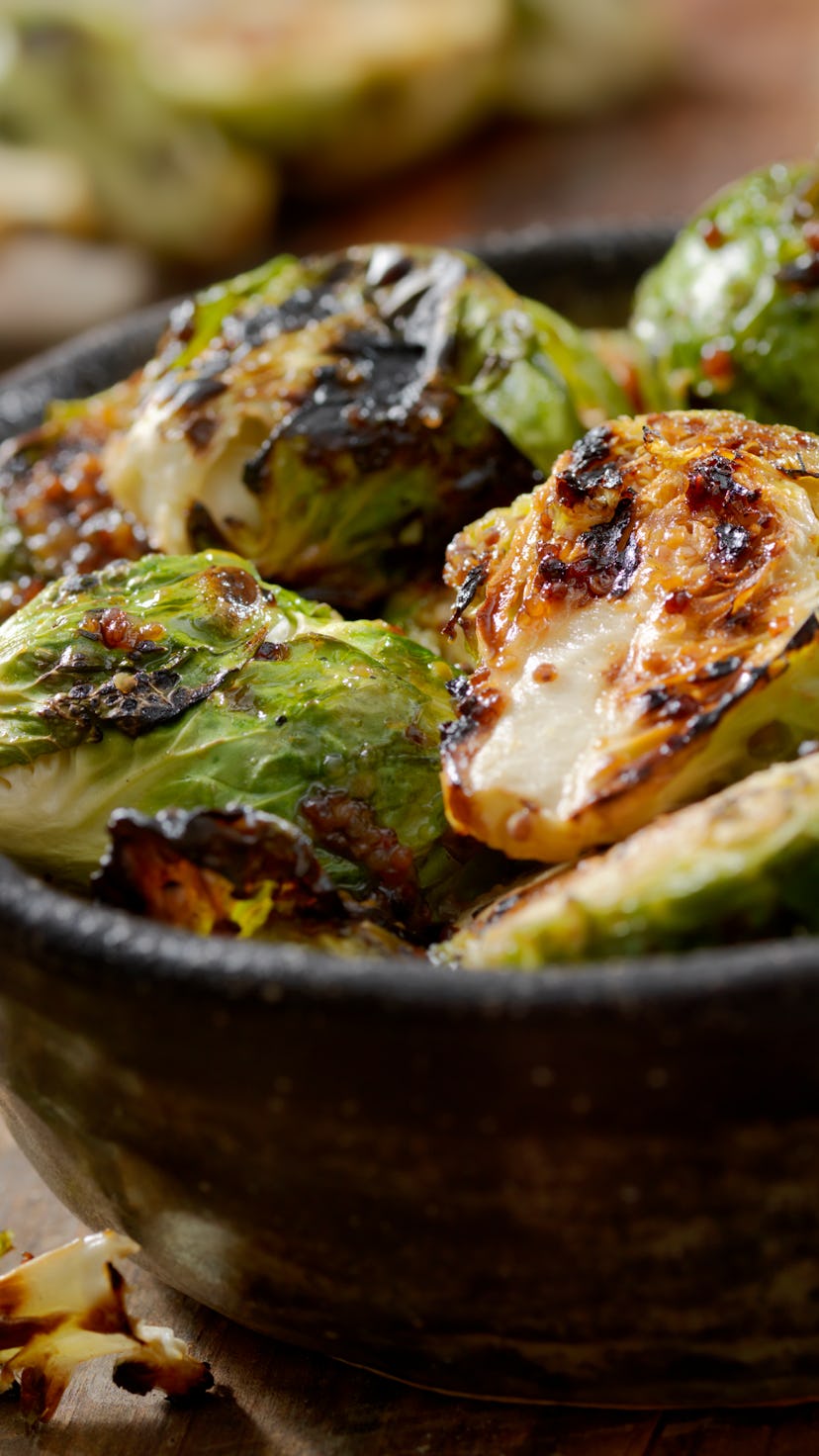GMVozd/E+/Getty Images
Pumpkin isn’t on the menu for Thanksgiving because it's leftover from Halloween. Your favorite winter foods are filled with nutrients that are most effective at nourishing you when they’re in-season. There's a scientific reason you crave certain foods at specific times of year.
Photography by Rayleigh/Moment/Getty Images
Traditionally, changing seasons meant a change in the foods our ancestors had access to, says Nikki Ostrower, an integrative nutritionist and founder of NAO Wellness. "We still tend to eat the foods traditionally consumed during the season."
Laurie Ambrose/Moment/Getty Images
Winter Squash
Butternut, acorn, spaghetti, and pumpkin are loaded with vitamins A, C, and B6. Ostrower says you crave them in flu and cold season because they are high in a compound called carotenoids, which have been linked to increased immune support.
Claudia Totir/Moment/Getty Images
Sweet Potato
Nutritionist Christen Cupples Cooper, R.D.N., tells Bustle that this root veggie is packed with vitamin A, protein, iron and calcium, and fiber. The combination of nutrients supports the body's immune defense, which is particularly helpful during the winter months.
LeliaSpb/Moment/Getty Images
Beets
Filled with potassium, iron, manganese, magnesium, vitamin B6, and folate, they're great for brain function, digestion, and circulation — all things that can slow down in the winter. Cooper adds that studies suggest they also reduce inflammation.
Roberto Machado Noa/Moment/Getty Images
Brussels Sprouts
Ostrower says this super veggie contains fiber, protein and Vitamins A and C. A benefit of a hearty serving (particularly if roasted), is that it's warming, fills you up, and keeps your blood sugar regulated so that your energy levels are steady through the day.
segray/E+/Getty Images
Greens
"Kale and cabbage freeze at a lower point and are more nutritionally hardy in the winter than other greens," Ostrower says. Swiss chard, mustard greens, and turnip greens also contain vitamin A, calcium and magnesium, supporting eye and bone health.
Vladislav Nosick / 500px/500Px Plus/Getty Images
Oats
"Oatmeal has grounding and warming effects on the body," Ostrower says. Whole oats are high in fiber, protein and fat, so they help to keep the body energized, insulated, and balanced.
Bill Boch/Photodisc/Getty Images
If your favorite winter food isn't listed, that doesn't mean it's not valuable. An apple cider doughnut might not help fight a cold, but it might bring you joy, via feel-good brain chemicals dopamine and serotonin — and that's just as crucial as a nutrient-dense veggie roast.
